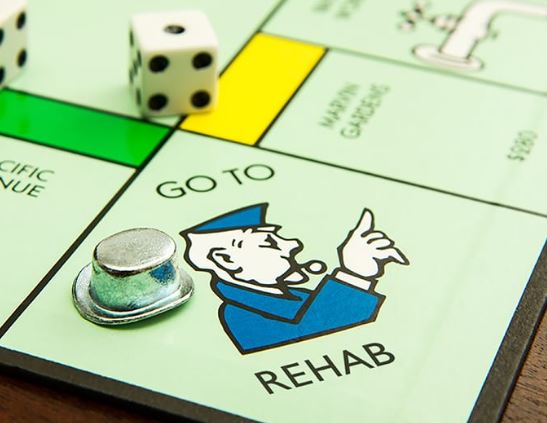24th February 2020 • Sticky Post
Addiction Treatment in Sweden: Why Swedish Addicts Are Heading Abroad
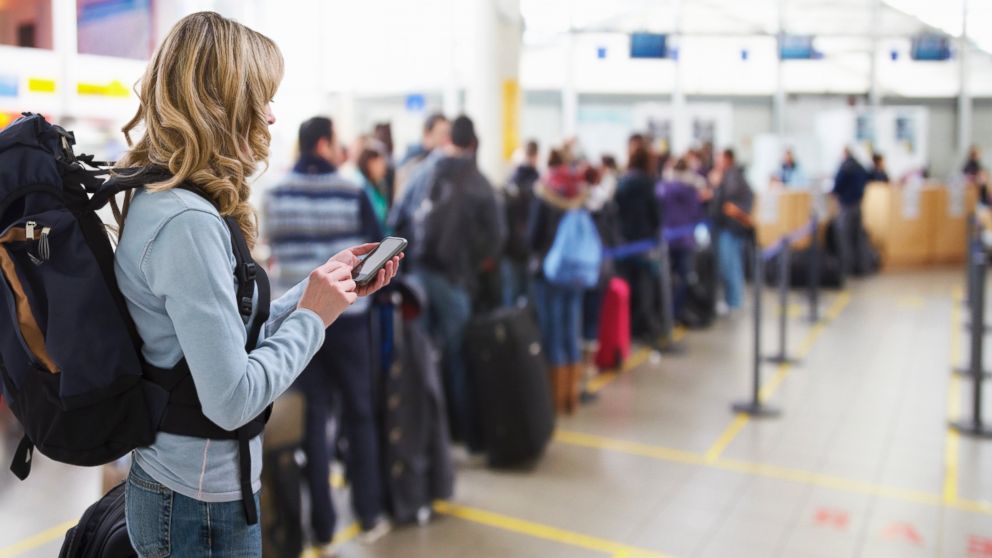
Sweden’s drug problem has been getting worse over the past few years. Despite its progressive reputation on social and environmental issues, the country has stubbornly clung to an outdated and ineffective method of dealing with addiction and the addicted. Unlike many of its neighbors, who have followed Portugal in adopting an approach based on the principles of harm reduction, Sweden still takes a zero-tolerance approach to drug use. As the government acknowledges, Sweden makes no distinction between “hard” and “soft” drugs, and police have the power to detain and demand a urine test from anyone who appears to be under the influence, followed by criminal charges and possible jail time.
As a result, Sweden has come under criticism from the World Health Organization and the UN for failing to embrace advances in drug treatment. The Swedish government has failed to implement programs that are proven to improve public health and remains stubbornly resistant to needle exchanges and other innovations that have been proven to save lives and public money. As Malmo University researcher Torkel Richert notes: “The bigger picture is that Sweden has for a long time had a big increase in overdoses. And if you compare it to Europe in general, we’re doing badly.”
Why Are Swedes Looking To Portugal For Addiction Treatment?

Portugal was in the midst of an epidemic of heroin addiction when they made the dramatic decision to embrace the principles of harm reduction and decriminalize the consumption of all drugs. As one of the architects behind Portugal’s new approach explains it: “We realized we were squandering resources. It made much more sense for us to treat drug addicts as patients who needed help, not as criminals.” By removing the threats of prosecution and incarceration, Portugal has reduced the stigma surrounding addiction, and the number of addicts receiving treatment has increased by 60% since 1998. The results the country has achieved simply by treating addicts with dignity and viewing addiction as a health issue has caused countries such as Canada, France, Switzerland, and Germany to embrace harm reduction. Portugal’s clear-headed, compassionate approach to treating addiction makes it an ideal destination for those attempting to overcome substance abuse problems.
Sweden offers some publicly funded drug treatment options, and there are privately run residential treatment facilities. In theory, seeking treatment in these centers will not put you at risk of increased attention from the police or the stigma of being an addict in a society that views drug use very harshly, but if you’re living in a small community, word might still spread. If you’re looking to be treated with dignity and respect, experience compassionate treatment, and maintain your privacy, going abroad might be your best option. As Richert notes, the “attitude towards drug addicts in Sweden has been embarrassing in many ways. They're a very stigmatized group. The phrase here in Sweden was 'it should be difficult to be a junkie'. And politically the idea is that if it is tough, more will want to stop.” If you’d like to be treated as a person, rather than a junkie, as you begin your recovery journey, you might want to consider seeking treatment in Portugal!
What Does Treatment Abroad Offer That Addiction Treatment In Sweden Doesn't?
1) Environment 
Leaving an environment full of familiar stressors and temptations can have a beneficial effect on treatment. Traveling abroad can bring a profound sense of relief and relaxation. Portugal is a picturesque country with a lovely Mediterranean climate. It’s dotted with quaint villages, ancient ruins, majestic castles, and miles of beautiful coastline. And there are few regions better suited to recovering your health than Portugal’s sun-drenched Alentejo region. A land of rolling hills and vast plains, the Alentejo offers visitors the opportunity to recover their health and connections to the natural world by riding horses, watching birds, stargazing, hiking and cycling. Swedish visitors are especially appreciative of the temperate climate, peaceful lifestyle, and delicious regional fare. All while enjoying a rehab facility that rivals a luxurious resort or hotel for a fraction of the cost of treatment back home. You’ll disconnect from a toxic environment and share amazing new experiences with people from all around the world!
2) Privacy

While increasing numbers of people are coming to the understanding that addiction is a medical issue, there is still a significant social and professional stigma that comes with seeking treatment for substance abuse. If you head to Portugal, it’s easy to tell friends, family members, and colleagues that you’re off on a much-needed vacation and avoid awkward conversations and prying questions. There’s also no risk that someone will spot you emerging from a clinic or support group meeting and start whispering.
3) Promising Treatments Unavailable In Sweden

We’ve written a lot about the undeniable power of ayahuasca and iboga to combat the addictive properties of opioids and other drugs and to open the addicted mind to the idea of a positive transformation into sobriety. Because Portugal has decriminalized all drugs, promising treatments that cannot be obtained in a safe medical setting in addiction treatment in Sweden can be accessed here with the supervision of healthcare professionals. If you think treatment that uses a psychoactive substance is your best option, we’d strongly recommend getting away from Sweden, where strong anti-drug laws put you at risk of prosecution and incarceration. Iboga has been considered a “Class 1” drug in Sweden since 1985. Its legal status came up for review in 2007, but the government ultimately decided against allowing medical use. A movement exists in Sweden to legalize the use of the powerful addiction interrupter, but given the track record of the Swedish government, we wouldn’t expect progressive reforms any time soon.
In spite of our belief in iboga’s remarkable ability to interrupt addiction, we would strongly advocate against using it in regions where draconian laws force its use underground, creating potentially fatal health risks.
4) Easy Intake

When you’ve reached rock bottom, a treatment center that can quickly start the process of detox and recovery can be a lifesaver. The prospect of waiting six months for the in-patient treatment you need can be a heart-breaking, motivation-sapping roadblock. Sweden’s drug programs are underfunded, one of the main reasons why the majority of Swedish addicts are pushed into outpatient treatment programs for addiction treatment in Sweden. Treatment centers abroad can immediately start the intake process, allowing you to strike back at your addiction when you’re feeling hopeful and motivated. This can make all the difference in the world!
Iboga Tree Healing House

At Iboga Tree Healing House we have a unique ability to accommodate clients from around the world with our welcoming, open-minded, and international staff. You’d be hard-pressed to find a treatment center more committed to the safety of its clients than Iboga Tree Healing House. We’re also deeply committed to maintaining a supportive and non-judgmental environment for facilitating recovery and personal growth.
In addition to offering iboga treatment, we also provide a wide array of holistic treatments, including breathwork, kundalini yoga, equine-assisted therapy, kambo, and more. All of these practices are extremely beneficial for re-energizing both body and spirit to pursue recovery. In combination with our ten hectares of outdoor space, large terraces, and outdoor swimming pool, we let nature remind our clients to be grateful and receptive for new horizons and second chances. We have many testimonials from people around the globe who’ve benefited immeasurably from experiencing our treatments in beautiful, sunny Portugal. If you’d like to experience the many benefits of treatment abroad, don't hesitate to get in touch!
18th February 2020 • Sticky Post
Finding The Right Iboga Treatment Program: 5 Important Tips

Finding The Right Iboga Treatment Program
So you’ve heard a lot about what iboga treatment is capable of doing to interrupt addiction, allow individuals to face trauma, or facilitate spiritual growth. You’ve poked around the internet to find out how iboga treatment works, and you’ve seen testimonials from people who’ve transformed their lives with the help of this powerful substance. You’re ready to take the plunge, and it’s time to find the iboga treatment program that will guide you through this life-changing experience. Today, we’ll give you five tips to find a program that meets your unique, individual needs.
1) Safety is Paramount

We have written extensively about the need for medical supervision and responsible use of iboga because we care passionately about it. Iboga is an extremely powerful substance, and we simply cannot overstate the importance of choosing a treatment center that takes the necessary precautions to keep you healthy and safe. This means that a clinic should be asking you for a detailed medical and psychiatric history. They should know what substances you’ve been using, how much you’ve been using, and for how long. They should take a full blood panel, and perform tests to ensure that your heart, liver, and kidneys are functioning properly. They should have a detailed emergency plan in place. Their staff should have medical training, and they should have a doctor on staff.
The Global Ibogaine Therapy Alliance has a lot of information on the safety of iboga use, and they offer a list of guidelines for clinical use. We would strongly recommend making sure that whatever iboga treatment program you choose follows these procedures. Any clinic that is willing to put your well-being at risk by ignoring established clinical guidelines doesn’t deserve your trust or your business!
2) Keeping it Legal

Iboga is a psychoactive substance, and as a result, it is illegal in many jurisdictions where it is wrongly regarded as a drug with potential for abuse. If you’ve decided that you want to free yourself from addiction and start a healthy and productive future, the last thing you want is to risk possible prosecution and incarceration. Iboga treatment is completely illegal in a number of countries, including the USA, France, Italy, and the UK. We would strongly recommend that you seek treatment in a country where clinics are free to operate, as you will almost certainly receive a higher level of care, from professionals rather than amateurs operating in a black market. It is also worth considering that a treatment center which is operating illegally might be reluctant to call an ambulance or rush you to a hospital should something go awry during your ibogaine treatment experience.
3) What else is on offer?

If you’re using iboga to break free from addiction to a substance of abuse, you’ll have a window of approximately 6 months of freedom from cravings. If you’re using iboga to treat mental illness or pursue personal growth, iboga’s effects on your central nervous system will be most pronounced in the period immediately following treatment. In both cases, you have a crucial window of time following your iboga experience where your mind and body will be extremely receptive to making positive changes and developing healthy habits.
Therefore, you need to find a treatment center that allows you to hit the ground running when iboga’s effects wear off. If you want to focus on traditional drug counseling, talk therapy, or CBT, find a center that provides those options. If you think yoga, mindfulness training, or art therapy would work better for you, explore treatment centers that offer alternative treatment modalities. You are the only person who knows the type of future you hope to build for yourself. You know what therapies you will respond to. Explore your own motivations, desires and needs, then look for an iboga provider who can give you what you need.
4) Environment is Everything

Your iboga experience will be an incredibly intense 8-12 hour journey through your past, your subconscious, and your deepest self. You will probably find yourself face to face with traumatic experiences from your past, and with the reality of who you are and what your life has become. A great deal of your time pre-and post-treatment will be spent preparing yourself for this, and recovering from it, so it is essential to find a clinic that offers you a peaceful and relaxing environment, with all of the amenities you find essential for your comfort. A friendly staff, a clean room, exercise facilities, nutritious food, pools, hot tubs, privacy, and beautiful natural settings can ensure that you have a positive experience, as well as speeding up the recovery process and putting you in the right mindset for beginning your new life.
5) Aftercare Matters

Creating and following a detailed plan for maintaining sobriety has been proven to profoundly affect treatment outcomes. Arming yourself with a solid plan for dealing with life after addiction will be a key factor in making iboga therapy work in the long-term. A center that can help you design and execute your blueprint for success, provide effective post-treatment aid and counselling, and help you make connections with the support network you’ll need to build a new life is a must. Whether you draw support from peers or professionals, you’ll find that fellowship makes you stronger, and we recommend that everyone join a peer support group, whether Smart Recovery, a traditional 12 Step Program, or another alternative. At Iboga Tree Healing House we also offer a weekly online aftercare program known as The IRM - Ibogaine Recovery Movement, which allows up to 8 former clients to meet once a week and share their experiences, trials, and triumphs. Those who have already undertaken the iboga journey will be able to offer you insights and advice that will prove invaluable.
Choose Wisely

If you’re going to use iboga, you are putting your life in the hands of the clinic you choose. No matter how desperate you are to get help with addiction or mental health issues, we implore you to put in the time and energy necessary for finding a responsible, professional clinic that meets your needs. If you have any questions about our methods, facilities, or programs, don’t hesitate to get in touch today!
12th February 2020 • Sticky Post
Making the Most of Addiction Treatment: 8 Things to Remember
Everyone who enters an addiction treatment program with the goal of ending their addiction and reclaiming their life should be congratulated. But evidence has shown us that certain methods, practices, and behaviors can greatly influence your chance of success in recovery. An inpatient or outpatient addiction treatment program is an excellent first step, but it is only one step on a long journey toward reclaiming your life and finding fulfillment. Today we’ll be taking a look at what you can do to get the most out of your addiction treatment experience and pave the way toward recovery that lasts.
1) Stay Openminded

Never lose sight of the fact that your previous attitudes, thought patterns, decisions, and behaviors have led you to addiction treatment. You’re in treatment because you’ve recognized that the time has come for dramatic changes in your life. One of the greatest gifts you can give yourself at the beginning of treatment is an open mind. There are myriad options that are available for healing yourself. 12 Step Programs, SMART Recovery, traditional psychotherapy, Cognitive Behavioral Therapy, iboga, yoga, exercise, mindfulness, ayahuasca, nutritional therapy, art, music, abstinence, medication, and family support have all helped thousands battle their addictions, and there are even more treatment options out there.
Effective treatment isn’t one size fits all, and everyone entering the process should look at every option before choosing the method they think will meet their individual needs. It’s also important to remind yourself that you are looking to make a drastic change in your life. You’ll need to step outside of your comfort zone and confront painful memories, physical and mental challenges, and learned behaviors. Being uncomfortable and experimenting with new ways of thinking and living is going to be part of the recovery process.
2) Ask For Help
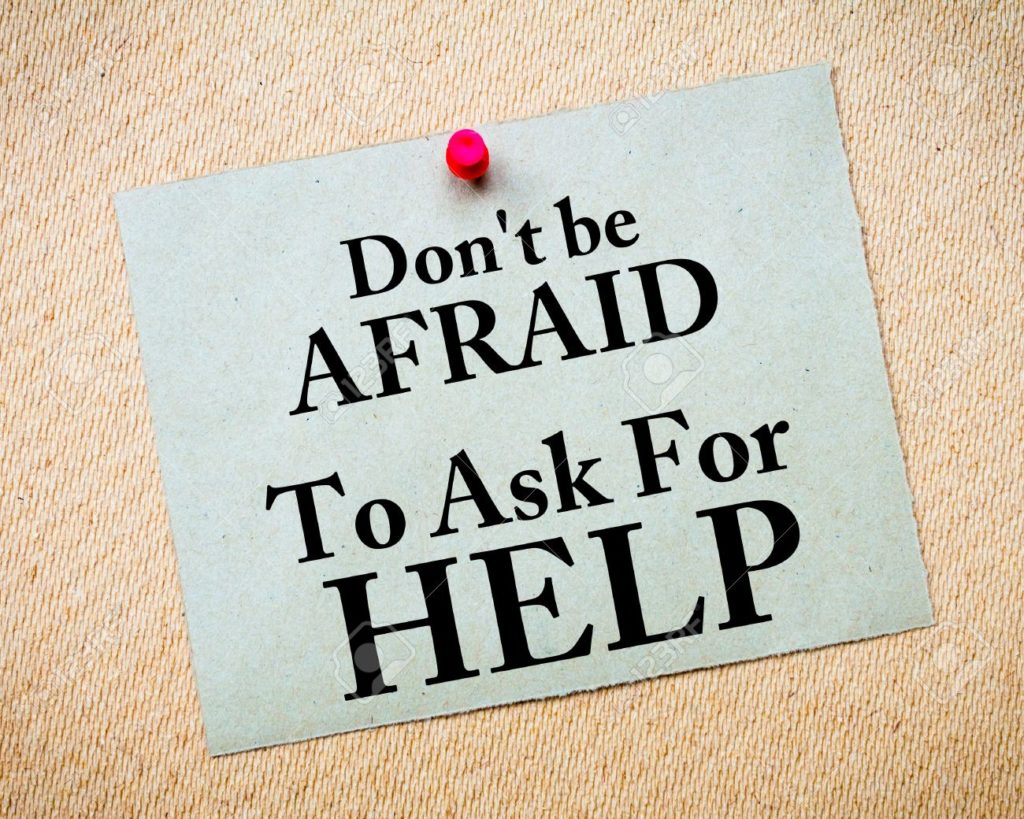
For every addict who has “gone cold turkey”, there are thousands who have relied on peer support, sponsors, family members, friends, and recovery professionals. There is absolutely no shame in needing support and guidance in rehab. The people around you in treatment have been through these wars, and they’ll be happy to share what they’ve learned with you. Remember that 12 Step programs view themselves as “we” programs, meaning that together, their members can do what no individual member could manage alone. We think this is a beautiful message for the entire recovery community. All of us are in the same boat, and we’re all here to help.
3) Honesty Matters

Addiction forces every addict to become a habitual liar. Addicts lie to themselves even more than to their co-workers or loved ones, telling themselves that they’re in control, that they’re about to cut back or stop, that they’re okay. Entering treatment is an act of breathtaking honesty, a necessary admission that you’ve become powerless, and a commitment to change your life. But old habits die hard, and the shame of admitting that you still crave a substance, or that you are feeling emotionally overwhelmed and anxious as you begin to rebuild your life can result in a return to dishonesty. Finding someone you can be completely honest with, and sharing every struggle and craving you experience can be hugely beneficial. Keeping a journal in order to explore all of your thoughts, feelings, and struggles with a clear eye is also massively helpful. Dishonesty will likely isolate you from your peers, cause you to feel ashamed, and push you toward “emotional relapse.” Honesty will allow you to get the help you need, and create the foundation for true healing.
4) Family Matters, Too

Family support is quickly becoming a cornerstone of treatment at many recovery centers. A sense of isolation is an extremely common side-effect of addiction, and involving loved ones in recovery can be a significant counterweight to that debilitating feeling, motivating addicts to rebuild meaningful bonds of love. In addition to the sentimental argument, medical studies have shown that perceived social and emotional support from loved ones leads to better treatment outcomes. Sharing your struggles and triumphs with the people you love provides powerful motivation and support to those in rehab.
5) Listen Up

This sounds simple. It is simple. But it’s also shocking how often we remain deep in our own thoughts while others try to communicate with us. Truly focusing on what other people try to share with us allows us to build meaningful connections. It also means that we’ll be taking their advice to heart. Remember, you came to rehab to look for answers. When others try to help you find them, the least you can do is give them your undivided attention.
6) Give Addiction Treatment Your All

In treatment, you are trying to change the thought patterns, physiological changes, and behaviors that have developed over years or even decades of addiction. If you think that this can be accomplished easily, you’re wrong. It isn’t a straightforward process, and it will demand a tremendous physical and mental effort. To succeed, you’ll need to enter rehab prepared to work hard, and ready to confront parts of yourself that you’ve been avoiding. If you’re breezing through the process, it means you’re doing it wrong. Treatment requires confronting pain, trauma, and your worst self. The good news is, it’s worth the struggle!
7) Addiction Stays With You After Treatment

Medical evidence shows that “continuing care” beyond the initial phase of treatment yields significant benefits for those in recovery. You should work with your treatment provider to create an aftercare plan that works for you. This doesn’t mean just going to peer support meetings. It could mean therapy, whether traditional or CBT. It could mean continuing daily yoga or mindfulness practice. Aftercare could be as simple as defining your core values and aspirations for life and building a system of rewards for making progress towards your goals. As with choosing a rehab center, creating the right aftercare plan for yourself depends on your personality and individual needs. But continuing the daily practices you adopt in treatment, whether meditation, meetings, prayer yoga, journaling, or simply going for a walk and making your bed, is highly recommended for creating positive patterns of behavior.
8) Reach Out And Help Others

The “we” idea discussed earlier is a beautiful way to view rehab. Virtually no one overcomes addiction by themselves. Taking the lessons you’ve learned from your experience and sharing them with those in need is a wonderful way to find meaning in your own life, and a constant reminder of the devastating toll addiction takes on individuals and society. By helping others battle addiction, you’re helping yourself and creating a better world. We can’t recommend it highly enough.
If you’re interested in putting this advice to work and think ibogaine treatment is something you’d like to explore, don't hesitate to get in touch with Iboga Tree Healing House today!
10th February 2020 • Sticky Post
5 Benefits of Kundalini Yoga For Recovering Addicts
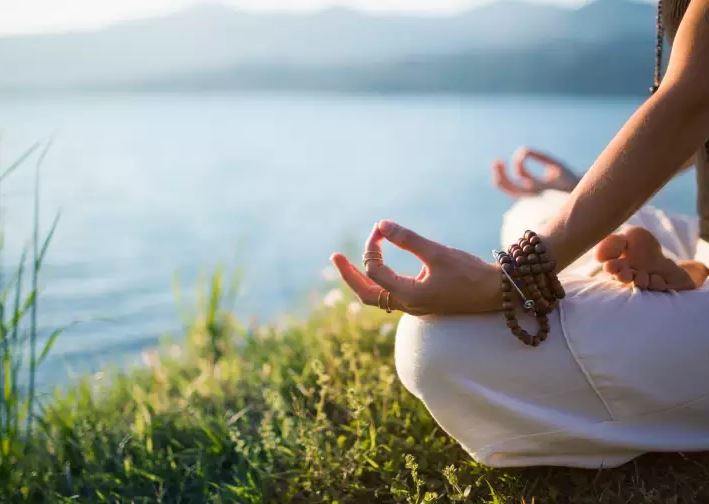
Yoga is a wonderful way to strengthen both the body and the mind, and it can provide skills and tools essential for succeeding in recovery. At Iboga Tree Healing House, we have made Kundalini Yoga an essential plank in our treatment regimen, and we have seen firsthand its power to transform lives and promote spiritual and emotional growth. It is a form of yoga that was first brought to the West by Yogi Bhajan, who believed that modern societies needed to learn to engage with and control their sensory systems. Yogi Bhajan felt that yoga and spirituality were necessary correctives for a society that was turning to drugs to expand consciousness and build spiritual connections. Kundalini yoga has helped millions to embrace a meaningful, healing connection between mind, body, and soul, and we’re committed to spreading its phenomenal healing and strengthening properties to those in recovery. Today we’ll be taking a look at 5 incredible benefits that Kundalini yoga can offer addicts in recovery.
1) Stress Control

Many of the techniques for controlling stress that you’ve been taught throughout your life actually originated with yoga. Controlled breathing, stretching, creating mental imagery, and focused physical movements are all techniques that have been used by yogis for over 5000 years. Multiple studies have found that yoga significantly reduces levels of cortisol in the body, a hormone associated with stress which is released when your “fight or flight” instinct takes over. Over time, elevated cortisol levels increase the risk of many significant health problems, including diabetes, obesity, heart disease, and dementia. Kundalini yoga can help you learn to regulate stress, and will lead to a sense of relaxation and better sleeping patterns. Because stress is often a powerful trigger for relapse, learning to manage it and lower your overall stress levels will greatly improve your chances of avoiding relapse when life gets tough.
2) Emotion Management

Addiction conditions the addict to respond to difficult emotions with self-medication. Odds are, when dealing with anger, sadness, frustration, disappointment or any other troubling emotion, your conditioned response will be to turn to a substance that will make your feelings go away. If you want to succeed in building a sober and healthy life for yourself, learning how to weather emotional storms and live with unpleasant emotions is a skill you must develop. Scientific studies have shown that yoga practice improves emotional regulation and self-compassion.
Many mental health practitioners liken our emotional states to the weather. They will shift from day to day and month to month. They can affect our interpersonal relationships, professional performance, and overall happiness. And our emotions manifest physically as well as mentally. Feeling your heart race, your stomach contort with butterflies, a blush rise on your cheeks, or your jaw clench are all physical manifestations of your emotional state.
One of the most important things that yoga teaches us is to balance, with both the body and the mind. Through its teachings, we learn to notice the sensations occurring in our bodies, and adjust our muscle actions to maintain a pose. This teaching is consciously and unconsciously applied to our mental state as well, as we learn to listen to our bodies and minds, and when we notice problems (such as tension, frustration, or exhaustion) make adjustments that keep us from toppling over onto the floor or experiencing emotional meltdowns.
3) Strengthening the Will

Many addicts cite a lack of willpower as one of the biggest obstacles to maintaining recovery. The good news is, yoga has been proven to make the “willpower systems” of the brain bigger, more efficient, and better-connected, according to Kelly McGonigal, a psychologist and yoga instructor who authored the book “The Willpower Instinct: How Self-Control Works, Why It Matters, and What You Can Do To Get More of It.” McGonigal states that “Yoga’s combination of slow, focused breathing, moderate physical effort and heart rate, and balanced autonomic nervous system, shifting the brain and body into this 'willpower' state. Yoga teaches you how to embody willpower.” While very few addicts can rely on willpower alone to overcome their struggles, it is inarguable that developing the ability to resist cravings and temptations will dramatically improve your chances of a successful recovery.
4) Reconnecting Body and Mind

If you’ve experienced years of addiction, you’ve likely been neglecting your physical health. Kundalini yoga will have a massive positive impact on your physical health, while also making you aware of the ways in which your physical deterioration has led to negative patterns of thought and a sense of hopelessness. Physical benefits regularly practicing yoga include releasing toxins from the lungs, expanding lung capacity, increasing physical endurance, boosting the immune system, and increasing the flow of oxygen to the brain (allowing for greater mental awareness and focus). When lost in addiction, it’s difficult to imagine waking up in the morning clear-headed, energized, and excited for the challenges of a new day. Yoga can make this your new reality!
Kundalini yoga is also based on connecting the pituitary gland, which regulates glands throughout the body, with the pineal gland, an organ associated with the mind and spirituality. Yogi Bhajan felt that the root of addiction was a pituitary gland which lost connection with the pineal, and began looking for stimulation from sources outside of the individual. He brought the teachings of Kundalini to the West with the aim of repairing that rift and allowing people to reconnect their minds, bodies, and souls.
5) Building Spirituality
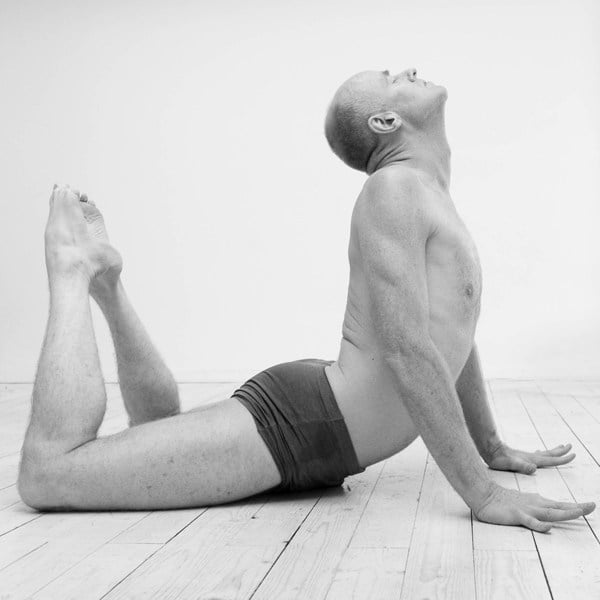
While not everyone is looking for spirituality, it can be an immensely powerful force for breaking the cycle of addiction, and a “higher power” has helped millions of people through the recovery process. Kundalini yoga is a wonderful way to develop a connection to spiritual practice in your life, whether it be from a wholehearted embrace of Yogi Bhajan’s teachings, a peaceful time of meditation each day, or even just a greater sense of mindfulness in your day to day life. Gratitude, prayer, and a connection to the universe can be potential benefits of yoga practice, but even for those skeptical of spirituality, taking some time to tune out the outside world and listen to your body and mind is a worthwhile endeavour.
At Iboga Tree Healing House, we feel that Kundalini yoga is a wonderful complement to iboga therapy, giving people the tools to create positive and healthy lives during a period when they’re free from withdrawal symptoms and cravings. One wonderful resource for using yoga to improve body/mind connections is Tommy Rosen’s Recovery 2.0 program. Mr. Rosen has devoted his energy to exploring how yoga, holistic perspectives on health and diet, and elements of 12 Step programs can work in harmony to create a new and more complete recovery program. He has gleaned some fantastic insights into regaining health and happiness, and you can explore Recovery 2.0’s programs here. If you have any questions you’d like to ask us about putting the powerful combination of iboga and yoga to work in battling your addiction, don't hesitate to get in touch!
6th February 2020 • Sticky Post
Addiction Treatment in Israel: Why Addicts Are Looking Abroad

Israel has been developing a serious drug problem over the past few years. Neighborhoods like East Jerusalem and South Tel Aviv have been ravaged by epidemics of heroin use, while regions like Gaza, with constant stress and 45% unemployment, have led residents to turn to drugs in desperation. As increasing numbers of Israelis are diagnosed with PTSD and depression, the estimated 120,000 addicts in the country are likely to swell even further. While politicians and the media are beginning to recognize the severity of the nation’s drug problem, Addiction treatment in Israel lacks the resources to effectively combat substance misuse and addiction.
Israel has drug treatment facilities, but options in the country are limited. Individuals seeking new and alternative methods for ending the nightmare of addiction are forced to look abroad. Choosing a facility in another country has the added benefit of guaranteeing privacy, a valid concern in a nation where conservative thinking stigmatizes substance-dependent individuals. That’s why many people seeking addiction treatment in Israel are beginning to look abroad, where waiting times are reduced to nothing, addicts are treated in positive, non-judgemental settings, and a luxurious experience can be had without financially crippling fees.
Why Portugal has become a popular alternative to addiction treatment in Israel

Portugal was in the midst of an epidemic of heroin addiction when they made the dramatic decision to embrace the principles of harm-reduction and decriminalize the consumption of all drugs. As one of the architects behind Portugal’s new approach explains it: “We realized we were squandering resources. It made much more sense for us to treat drug addicts as patients who needed help, not as criminals.” By removing the threats of prosecution and incarceration, Portugal has reduced the stigma surrounding addiction, and the number of addicts receiving treatment has increased by 60% since 1998. The results the country has achieved simply by treating addicts with dignity and viewing addiction as a health issue has caused countries such as Canada, France, Switzerland, and Germany to embrace harm-reduction. Portugal’s clear-headed, compassionate approach to treating addiction makes it an ideal destination for those attempting to overcome substance-abuse problems.
Retorno, one of Israel’s leading treatment centers, has been accused by multiple former clients of subjecting them to dehumanizing and sadistic practices. The center’s “tough love” approach includes forcing clients to shovel manure and dress as babies when their behavior was deemed immature. While modern psychologists find these practices to be “ineffective and possibly detrimental”, Israel’s Ministry of Social Services deems isolation (Retorno had a punishment bench where transgressors were forced to sit for hours at a time in the desert sun), enforced silence, and anger therapy (standing in a circle of peers who are instructed to shout at and insult you) to be effective techniques for treating addiction. If you’re looking to be treated with dignity and respect, addiction treatment in Israel might not be your best option.
The Many Benefits Of Treatment Abroad
1) Environment

Leaving an environment full of familiar stressors and temptations can have a beneficial effect in treatment. And traveling abroad can bring a profound sense of relief and relaxation. Portugal is a picturesque country with a lovely Mediterranean climate. It’s dotted with quaint villages, ancient ruins, majestic castles, and miles of beautiful coastline. And there are few regions better suited to recovering your health than Portugal’s sun-drenched Alentejo region. A land of rolling hills and vast plains, the Alentejo offers visitors the opportunity to recover their health and connections to the natural world by riding horses, watching birds, stargazing, hiking, and cycling. Israeli visitors are especially appreciative of the temperate climate, peaceful lifestyle, and delicious regional fare. All while enjoying a rehab facility that rivals a luxurious resort or hotel for a fraction of the cost of treatment back home. You’ll disconnect from a toxic environment and share amazing new experiences with people from all around the world!
2) Privacy

While increasing numbers of people are coming to the understanding that addiction is a medical issue, there is still a significant social and professional stigma that comes with seeking treatment for substance abuse. If you head to Portugal, it’s easy to tell friends, family members, and colleagues that you’re off on a much-needed vacation and avoid awkward conversations and prying questions. There’s also no risk that someone will spot you emerging from a clinic or support group meeting and start whispering.
3) Promising Treatments Unavailable At Home

We’ve written a lot about the undeniable power of ayahuasca and iboga to combat the addictive properties of opioids and other drugs and to open the addicted mind to the idea of a positive transformation into sobriety. Because Portugal has decriminalized all drugs, promising treatments that cannot be obtained in a safe medical setting in Israel can be accessed here with the supervision of health-care professionals. If you think treatment that uses a psychoactive substance is your best option, we’d strongly recommend doing getting away from Israel, where strong anti-drug laws put you at risk of prosecution and incarceration. In spite of our belief in iboga's remarkable ability to interrupt addiction, we would strongly advocate against using it in regions where draconian laws force its use underground, creating potentially fatal health risks.
4) Easy Intake
When you’ve reached rock bottom, a treatment center that can quickly start the process of detox and recovery can be a life-saver. The prospect of waiting six-months for the in-patient treatment you need can be a heart-breaking, motivation-sapping roadblock. Addiction treatment in Israel is underfunded, one of the main reasons why an estimated 75% of addicts are not receiving treatment. Treatment centers abroad can immediately start the intake process, allowing you to strike back at your addiction when you’re feeling hopeful and motivated. This can make all the difference in the world!
Iboga Tree Healing House

At Iboga Tree Healing House we have a unique ability to accommodate clients from around the world with our welcoming, open-minded, and international staff. You’d be hard-pressed to find a treatment center more committed to the safety of their clients than Iboga Tree Healing House. We’re also deeply committed to maintaining a supportive and non-judgemental environment for facilitating recovery and personal growth.
In addition to offering iboga treatment, we also provide a wide array of holistic treatments, including breathwork, kundalini yoga, equine-assisted therapy, kambo, and more. All of these practices are extremely beneficial for re-energizing both body and spirit to pursue recovery. In combination with our ten-hectares of outdoor space, large terraces, and outdoor swimming pool, we let nature remind our clients to be grateful and receptive to new horizons and second chances. We have many testimonials from folks who’ve benefited immeasurably from experiencing our treatments in beautiful, sunny Portugal. If you’d like to experience treatment abroad, don’t hesitate to get in touch!
4th February 2020
Iboga Safety: The Facts

Iboga treatment has been growing more popular with each passing year. Its profound beneficial effects on withdrawal symptoms and its remarkable ability to interrupt opioid addiction have changed thousands of lives, pushing addicts to break free from their crippling afflictions and easing them forward on the path to recovery. But like many powerful substances, its use comes with a number of legitimately frightening side effects and risks. While we at Iboga Tree Healing House are fervently committed to iboga safety in the treatment of addiction treat addiction, we are equally passionate about educating the public about the potential dangers that iboga treatment poses, and ensuring that anyone looking to use the substance knows absolutely everything about the healing and harm that iboga can potentially bring.
The Risks
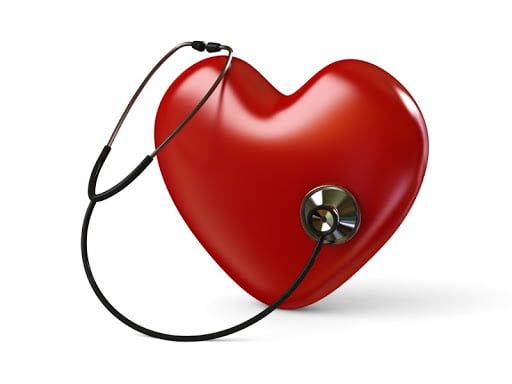
The Global Ibogaine Therapy Alliance (GITA) has a comprehensive list of potential side-effects that can arise from iboga use, which includes all of the medical conditions that can be negatively affected by the substance. They’ve confirmed that 19 deaths were associated with ingestion of iboga between 1990 and 2008, all of which were “associated with a number of pre-existing conditions and factors that include pre-existing cardiac conditions, seizures resulting from acute withdrawal from alcohol or benzodiazepines” and the use of iboga alongside other “drugs of abuse.”
If you have a heart condition, impaired kidney or liver function, certain psychological conditions, or if you’re undergoing withdrawal from a variety of substances (such as methadone, benzos, alcohol, and others) you should absolutely avoid using iboga. Some studies have found that extremely high doses of the drug may induce seizures, although in smaller doses it acts as an anti-convulsive. Iboga is a very powerful psychoactive substance that substantially affects the central nervous system. Iboga can heal, but it can also harm.
Necessary Iboga Safety Precautions

All conscientious providers of iboga therapy should exclude those with pre-existing heart conditions from treatment. Of the 19 iboga related deaths documented thus far, six were determined to have come from cardiac arrest, and in five of those cases, the deceased had been diagnosed with a heart condition. The one cardiac arrest death which occurred in a user with a healthy heart was the result of self-administration of iboga along with an unspecified “booster” which he had purchased on the internet.
There is debate on whether patients with HIV and certain psychiatric disorders can use iboga safely. The usual reason offered for the exclusion of these groups is a paucity of research into whether the substance can potentially exacerbate the symptoms of these diseases. Since there is no hard evidence that iboga therapy is harmful to patients with HIV, some treatment facilities continue to offer iboga to those suffering from the virus, but at Iboga Tree Healing House we have decided to err on the side of caution. For a full list of our inclusion and exclusion criteria, follow this link.
Mixing Iboga With Other Substances

Beginning iboga therapy while other drugs of abuse are still in your system is extremely dangerous and must be avoided. Iboga can exponentially increase the effect of opiates, so it’s necessary for safe treatment that you must go through detox before you enter treatment. The intensely reflective state, reduction of cravings, neurological effects, and sense of well-being that iboga can provide have helped many alcoholics to recover from addiction, but withdrawal from alcohol must be completed before iboga can be safely administered. It is recommended that patients suffering from alcoholism complete at least 7 days of medically supervised withdrawal, or they’ll put themselves at risk of a host of side-effects including cardiomyopathy, delirium tremens, and seizures.
It should also be noted one side-effect of iboga is that it reduces substance users to a so-called “novice state.” Therefore, following treatment your tolerance to opioids and other substances will be dramatically lowered. While all addicts enter recovery with the intention to stay sober for the rest of their lives, it’s important that they are mindful of this in the event of a relapse, as vulnerability to severe intoxication or even an overdose will be greatly increased.
Providers and Iboga Safety

Any reputable and responsible iboga provider should be asking you for a great deal of medical information. This article offers a thorough breakdown of what a clinic needs from you to provide for your iboga safety. GITA also offers a comprehensive list of Clinical Guidelines for Iboga-Assisted Detoxification on their website. Iboga Tree Healing House takes every step possible to guarantee the safety of our patients, requiring our clients to take an EKG test, be free from stimulants (including coffee), undertake a comprehensive blood count and metabolic panel, and test liver and kidney function. We also measure levels of serum electrolytes and thyroid function for patients over 45 years old.
The most important piece of advice we can give you is this: if a clinic isn’t asking you for a detailed medical and psychiatric history and providing you with information about their emergency plan, turn around and walk away as fast as you can! This means that they’re more interested in your money than your health and iboga safety, or they are ignorant of and unconcerned with the potentially fatal harm the substance can cause when used irresponsibly.
The Good News

In spite of all of the associated risks, and even accounting for the fact that iboga is frequently used without adequate (and in some cases any) medical screening and supervision, it is still safer than methadone! 19 deaths have been temporally associated with Iboga use, and 14 of them have provided adequate post-mortem data. Of those 14, 12 cases involved either a pre-existing medical condition or the presence of other drugs of abuse in the system of the deceased. The other two occurred in settings without adequate medical supervision.
We will be the first to tell you that iboga is not completely safe, but we feel that each and every death associated with its use has been preventable and avoidable. Because we have seen its immense potential to re-build lives devastated by addiction and mental illness, we have become advocates not only for its benefits but also for providing the public with all the information we can give them about the risks and precautions necessary for using this remarkable plant. Irresponsible use can end lives. It can also keep this promising tool for fighting the opioid epidemic away from thousands of those who could reclaim their lives and health with safely administered and supervised iboga therapy.
5th December 2019
The Opioid Epidemic: Calculating the Costs
The opioid epidemic continues to impose a tremendous human and societal cost on the world. Big pharmaceutical companies have gotten us into a horrendous mess by dishonestly, unethically, and even illegally pushing opioid painkillers on a public that was unaware of the significant risks of dependency and addiction. Purdue Pharma, the maker of Oxycontin and an industry leader who reaped immense profits from peddling dangerous drugs, recently settled a lawsuit in Oklahoma for a whopping 270 million dollars. There are still approximately 2000 other lawsuits waiting to go to trial across the United States, alleging that Purdue and other large pharmaceutical companies “engaged in deceptive marketing that downplayed the addiction risk from opioids while overstating their benefits.” Before the financial settlements and jury awards start to roll in, let’s take a long look at the human and financial costs of the opioid crisis.
The Pain Paradox

The opioid epidemic has roots not just in irresponsible marketing campaigns, but in the structures of our health-care systems and societal approaches to dealing with pain. In America, HMOs have largely replaced family physicians, and doctor-patient interactions have shifted from intimate, familial relationships focused on long-term health to a customer service model. Meanwhile, funding for holistic, multi-disciplinary approaches to pain management has dried up in many countries. These trends created the conditions which allowed opioid use to spread like wildfire.
Rather than addressing the root causes of pain and working on long-term solutions, physicians (and dentists, the most common issuers of fast-acting opioids) settled on temporary pain relief via pills. Everyone involved with the health-care system was incentivized to settle for oxycontin instead of pursuing the more expensive, complicated, and slower psychosocial and physical solutions that would enable the afflicted to successfully manage their pain.
The Opioid Epidemic's Terrible Human Toll
According to the American Centers for Disease Control, over 700,000 people died of drug overdoses between 1999 and 2017, with 68% of the deaths (almost 400,000 fatalities) involving an opioids. By 2017 the number of deaths involving opioids was 6 times higher than it had been in 1999, and 130 Americans were being killed by opioid overdoses every day! Americans are now more likely to die from an opioid overdose than from a car crash.
Opioid prescriptions were frequently given not just for severe long-term pain, but also for routine procedures which caused a few days of manageable pain, like wisdom teeth removal, bone fractures, and minor surgery. Relying on pills to avoid a few days of discomfort led millions to years of addiction and even death. As evidence mounted that exposure to opioid painkillers heightened the risk of abuse and addiction, the prescriptions continued to pile up.
Nowhere was harder hit by the opioid epidemic than rural communities in America. The state of West Virginia alone was showered with 780 million oxycodone and hydrocodone pills, amounting to “433 pills for every man, woman and child” in the state. One town with a population of 392 and a single pharmacy received 9 million pills in a two year period. Kanawha County, with a population of 190,000 received 66 million oxycodone and hydrocodone pills.
Pharmaceutical companies and legislators were finally forced to address the issue and limit the supply of pills, but that has led to even worse problems. As the legal supply of opioids has dried up, more and more addicts have turned to the black market, which is largely comprised of Fentanyl-based pills. Fentanyl, a powerful synthetic opioid, is manufactured in China, shipped to Mexico where it is processed into counterfeit pills, and distributed around the world. Fentanyl is 30-50 times stronger than heroin and can be lethal in doses of just 2 milligrams. As a US Attorney in Ohio has noted: “One of the truly terrifying things is the pills are pressed and dyed to look like oxycodone. If you are using oxycodone and take fentanyl not knowing it is fentanyl, that is an overdose waiting to happen. Each of those pills is a potential overdose death.”
The Financial Cost of the Opioid Epidemic
A report from Altarum, an American healthcare research and consulting firm, calculated that eliminating opioid addiction and overdoses would create an annual benefit to the US economy of $115 billion. They calculate that the total cost of the opioid epidemic since 2001 has been over $1 trillion and that an additional $500 billion will be added to the sum by 2020. Others calculate the cost to the government alone at approximately $80 billion annually, without even factoring in the cost of healthcare fees, legal expenses, and lost productivity on individuals and families.
These immense sums boggle the mind, but they fail to reckon with the profound impact of the opioid crisis on communities. Trauma, fractured families, decreased property values, loss of community well-being, educational impacts, and a myriad of other social problems whose impact has yet to be gauged are on their way. The opioid crisis has left behind it a wake of devastation, poverty, and heartbreak. But is there anything that can be done to reverse the tide of human misery?
What's Next?
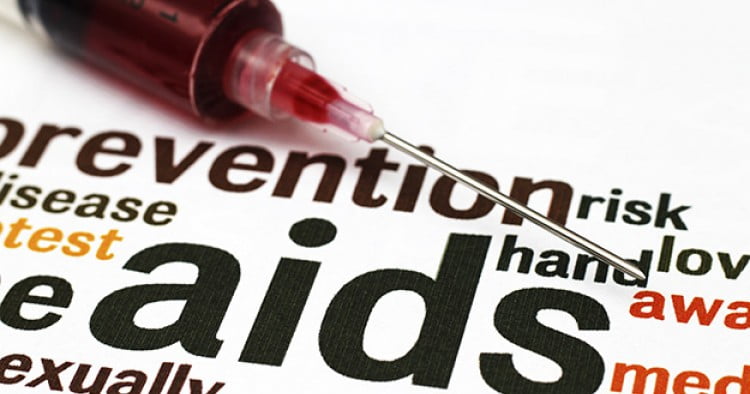
One necessary step for dealing with the current opioid crisis is embracing the principles of harm reduction. The medical establishment has led millions of people toward addiction by profitably over-prescribing pills. Their victims shouldn’t face criminalization and stigma for following a doctor’s advice. The Portuguese model has shown great promise for dealing with addiction by treating addiction as a health issue. It’s time for other countries to follow suit.
Another important tool for dealing with rampant opioid addiction is iboga therapy. The treatment is a proven success in dealing with substances such as Oxycontin and Oxycodone, acting as an addiction disruptor and opioid antagonist. If governments are serious about battling the plague of opioid addiction, the time to begin clinical trials is now!
But perhaps the most necessary step in dealing with this massive crisis is changing our understanding of pain. Pain management is a necessary part of life, and all of us will have to deal with intense physical and mental pain at some point. It’s time for the medical establishment to embrace comprehensive, holistic pain management plans. Pressure, stretching, motion, and touch are all proven to relieve pain. Cold and vibration-based therapies have been clinically proven to limit opioid use and dull perceptions of pain while the body heals. Sleep hygiene, ibuprofen, magnesium supplements and a host of other options have shown to be as or more effective than opioids in dealing with certain varieties of pain. As Dr. Amy Baxter of Pain Care Labs argues, changing the paradigm from a focus on pharmaceuticals to creating comprehensive, individual “pain plans” will destroy the false dichotomy of pills and “complementary” treatments. There isn’t a “Big Yoga Lobby” taking doctors on expensive promotional junkets yet but using some of the windfalls from lawsuits against pharmaceutical companies to create one wouldn’t be a bad idea.
29th October 2019 • Sticky Post
10 Simple Steps Toward A More Mindful Life
Being "Mindful" is a concept that most people are vaguely aware of, but few have explored it deeply. Essentially, it is based on Buddhist teachings which assert that people either ruminate on past events or speculate endlessly about the “ungraspable” future, rather than fully inhabiting the present moment. The fact is, the past is finished and the future never comes. We are always living in the present, and we should focus our thoughts and energies on the things happening around us. In Buddhist teaching, those who don’t practice mindfulness are “walking corpses”, never stopping to take a deep breath and be fully conscious of, and present with, themselves. As one Western psychologist defines the term: “Mindfulness is the process of engaging a full, direct, and active awareness of experienced phenomena that is spiritual in aspect and that is maintained from one moment to the next.”
Being "Mindful"
If Buddhist monks spend lifetimes in search of true mindfulness, how can we incorporate it into our hectic modern lives? It’s difficult, but there are a number of daily practices that will enable you to experience the benefits of fully engaging with the present.
Step 1: Take A Deep Breath

From the most traditional Japanese monk to the most empirical Cognitive Behavioural Therapy practitioner, everyone teaching mindfulness will start with a focus on breathing. Pay attention to the way breathing feels, watch your belly rise and fall, and feel your heartbeat. You’ll immediately feel more grounded, and more connected to your body. You don’t need to take deep breaths or change any of your natural patterns. Just being aware of what your body is doing will deepen your ability to connect to the moment.
Step 2: Think Less

Most people tend to let their minds wander, but thinking deeply about the future often leads to heightened anxiety and stress. You don’t need to obsess about what happened yesterday, or what might happen tomorrow. When you notice yourself over-thinking, over-analyzing, or obsessing, focusing on your breathing can bring you back to the present. The ability to simply “be” leads to happiness.
Step 3: Use Your Senses
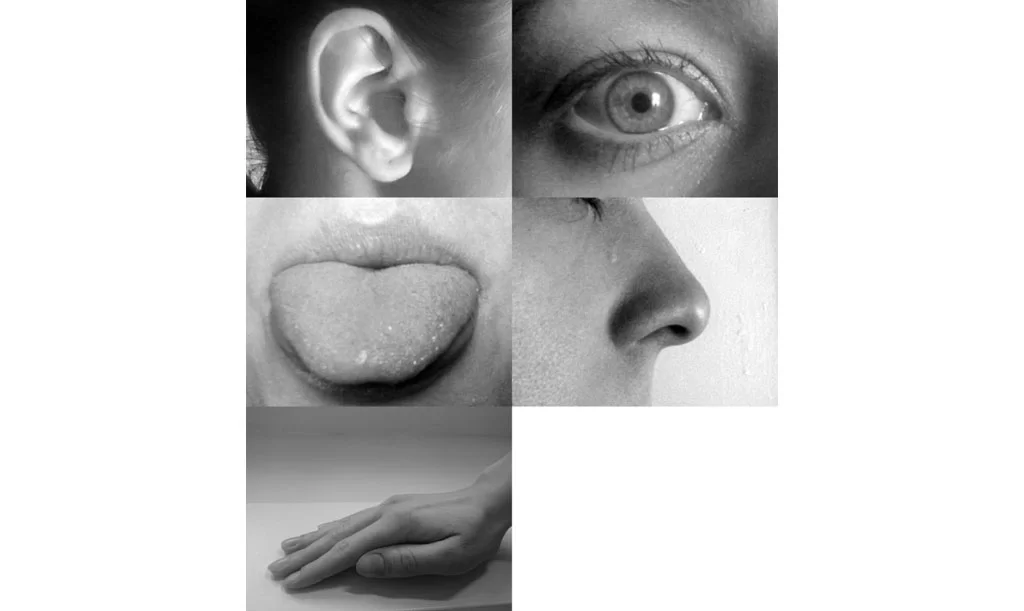
People tend to forget that they have five senses. To avoid going through life on auto-pilot, consciously focus on the sensory experiences that make life worth living. Appreciate the colours, textures, and smells of your lunch. Take your headphones out and listen to the sounds around you. Pet a cat. We often say that we should stop and smell the roses, but how often do we actually take a few moments to do it?
Step 4: Stop and Think

Take a second to think about how many thoughts you’ve had in your life. There have been so many there’s no way you could put a number on it. Yet we tend to think of whatever thought is consuming us in a given moment as immensely important. A part of mindfulness is recognizing that thoughts are just thoughts. They don’t always need to be believed, expressed, or acted upon. Mindfulness will teach you that thoughts aren’t an essential part of who you are, they’re momentary impulses that can be positive or negative, ignored or taken seriously. There’s a reason why nobody offers a pound, a euro, or a dollar for them!
Step 5: Stay Engaged

Notice when you tend to zone out and start daydreaming. Whether it’s driving, emailing, washing dishes, or even watching TV. Practice bringing more awareness to those activities, and fully engage with the task at hand. If you’re sweeping the floor, pay attention to the sound of the broom, the movements of the dust, the way the dustpan feels in your hand. You might find that if you aren’t rushing through chores and errands with an eye on the future, you’ll begin to take more pleasure from your daily routine. Part of being mindful is making every moment count, and putting your energy into your life as you live it!
Step 6: Take A Minute
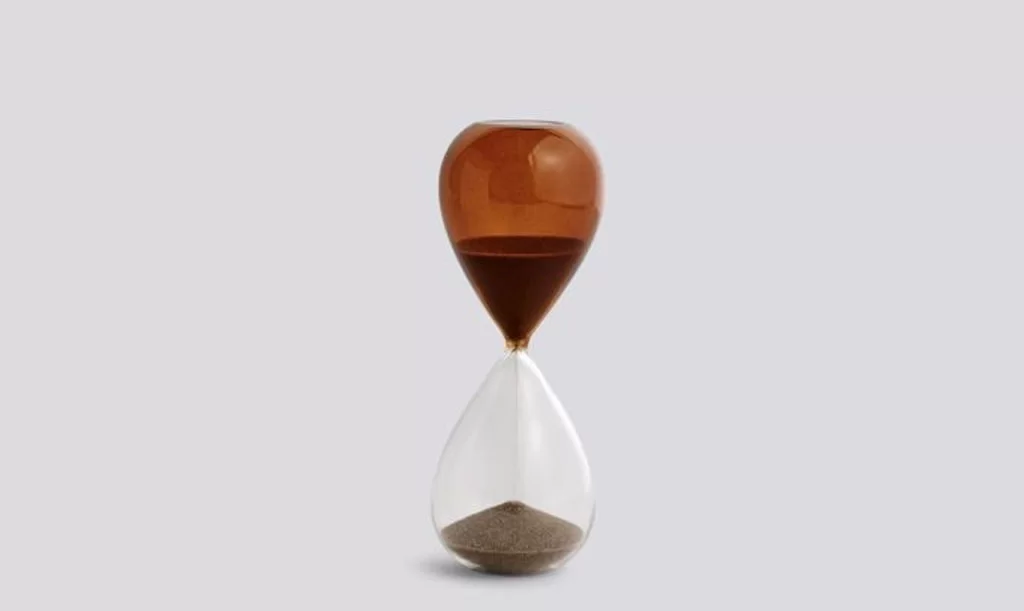
You can start small. Set a timer for one minute, and devote that time to a total focus on your breathing. If you become distracted by a pesky thought, try to let go of it and come back to your breathing. Even one minute a day of meditation can dramatically reduce your levels of stress and aggravation.
Step 7) Listen Up

When someone else is talking, we are often focused on our own internal monologues. Do we agree? What will we say next? What’s going on over there? Focusing all of our attention on a friend who is communicating with us is an act of kindness and love, and you’ll be surprised how many people notice, appreciate, and reciprocate with a person who is truly listening to them.
Step 8: Deal With One Thing At A Time

Society has been pressuring us to multi-task for years, and smartphones have made it easier for us to talk, text, email, listen to music, and eat lunch all at the same time. But multi-tasking saps us of energy, increases stress levels, and makes us more prone to careless mistakes in everything we do. Taking the time to deal with tasks one at a time, and focusing all of our attention on what we’re doing allows us to actually be more efficient, and do a better job than we would while rushing through 20 things at once.
Step 9: Examine Your Thoughts

Taking a clear-eyed look at what you’re thinking and why you’re thinking it is an essential part of being mindful. If you start doing this, you’ll notice thought patterns, and you can begin to unravel patterns of negativity. If you can take a step back from your thoughts, you’ll learn to question and control reactive, conditioned thought and behaviour. This is incredibly important for those in recovery!
Step 10: Walk It Out

Walking is a great opportunity to practice being mindful, even on your busiest days. Before you get moving, remind yourself to focus on the act of standing up, and putting one foot in front of the other. Pay attention to your body and your breath. Let your senses fill your mind with the sounds, sights, and smells of your neighborhood. A five-minute walk can be a golden opportunity to connect with yourself and the world around you!
Being More Mindful In Recovery
At Iboga Tree Healing House, we are convinced that practicing mindfulness is incredibly beneficial for those in recovery. Its power to improve mood, promote emotional regulation, and deal with negative thoughts and impulses can change lives! Mindfulness and meditation training are fundamental elements in our holistic treatment package. If you’re interested in a treatment center that promotes spiritual development as well as sobriety, don’t hesitate to get in touch today!
23rd October 2019
Why Brits Are Flocking To Portugal Instead of Accessing UK Addiction Treatment
Addiction treatment in Portugal is becoming a popular and appealing option for British citizens looking to overcome issues with substance misuse. The UK has the highest rates of drug misuse and addiction in Europe, but it struggles to keep up with the demand for effective and timely treatment. Individuals seeking treatment from the NHS are generally subject to a long process of referrals and waiting lists. It’s estimated that you’re likely to wait 8 weeks to see a mental health counselor who might not have experience treating addiction. The road to inpatient UK addiction treatment is even longer: if cheaper, less intensive options don’t work for you, you’re likely to wait 6 months to a year before entering a “budget rehab” center that attempts to cheaply treat large numbers of clients. Doesn’t sound ideal, does it? Addiction is a life-threatening issue, and treatment will be far more effective at a time when the addict is open to change. Waiting months to enter a sub-par treatment facility can be a potentially fatal mistake.
If you want to get treatment when you’re ready for it, there are private UK addiction treatment options available. But with 28-day program fees reaching as high as 60,000 pounds per month, the costs can quickly become prohibitive, especially if you’re looking for a comfortable, relaxing, and luxurious environment. Which is why many people seeking treatment are beginning to look to treatment in Portugal, where waiting times are reduced to nothing, and a luxurious experience can be had without financially crippling fees.
Why Portugal?
Portugal was in the midst of an epidemic of heroin addiction when they made the dramatic decision to embrace the principles of harm-reduction and decriminalize the consumption of all drugs. As one of the architects behind Portugal’s new approach explains it: “We realized we were squandering resources. It made much more sense for us to treat drug addicts as patients who needed help, not as criminals.” By removing the threats of prosecution and incarceration, Portugal has reduced the stigma surrounding addiction, and the number of addicts receiving treatment has increased by 60% since 1998. The results the country has achieved simply by treating addicts with dignity and viewing addiction as a health issue has caused countries such as Canada, France, Switzerland, and Germany to embrace harm-reduction. Portugal’s clear-headed, compassionate approach to treating addiction makes it an ideal destination for those attempting to overcome substance-abuse problems.
What Are The Benefits Of Treatment In Portugal?
1. Environment

Leaving an environment full of familiar stressors and temptations can have a beneficial effect in treatment. And traveling abroad can bring a profound sense of relief and relaxation. Portugal is a picturesque country with a lovely Mediterranean climate. It’s dotted with quaint villages, ancient ruins, majestic castles, and miles of beautiful coastline. And there are few regions better suited to recovering your health than Portugal’s sun-drenched Alentejo region. A land of rolling hills and vast plains, the Alentejo offers visitors the opportunity to recover their health and connections to the natural world by riding horses, watching birds, stargazing, hiking, and cycling. British visitors are especially appreciative of the warm, dry climate, and the delicious regional fare. All while enjoying a rehab facility that rivals a luxurious resort or hotel for a fraction of the cost of treatment back home. You’ll disconnect from a toxic environment and share amazing new experiences with people from all around the world!
2. Privacy

While increasing numbers of people are coming to the understanding that addiction is a medical issue, there is still a significant social and professional stigma that comes with seeking treatment for substance abuse. If you choose to do addiction treatment in Portugal, it’s easy to tell friends, family members, and colleagues that you’re off on a much-needed vacation and avoid awkward conversations and prying questions. There’s also no risk that someone will spot you emerging from a clinic or support group meeting and start whispering.
3. Short-sighted UK drug policies

The UK’s “Psychoactive Substances Act”, passed in 2016, was an attempt to deal with legitimate problems, such as the emergence of spice, bath salts, and other harmful substances which were being outlawed on an ad hoc basis after they had emerged as serious health risks. Unfortunately, the legislation had a couple of adverse side effects: pushing the new synthetic drug market underground thereby creating an opportunity for organized crime, and scheduling promising substances such as iboga, kambo, ayahuasca, and psilocybin as illegal narcotics. Prohibition has failed as a remedy to the harms psychoactive substances bring to individuals and societies. It has also blinded us to the benefits that many naturally occurring substances are capable of providing. Portugal is currently far more enlightened in its approach to psychoactive substances and addiction than the UK, another reason why treatment in Portugal is becoming ever more popular.
4. Proximity
The benefits of leveraging family support in the treatment process have been proven. For patients from the UK, treatment in Portugal can offer all the benefits of treatment abroad, along with easy access to family and friends whose support can make all the difference. With flight routes serviced by multiple budget carriers, your loved ones can be by your side in a matter of hours, for as little as 20 pounds. Treatment in Portugal offers the best of both worlds: a sunny and exotic environment that offers all the comforts of home!
5. Promising Treatments Unavailable At Home

We’ve written a lot about the undeniable power of ayahuasca and ibogaine to combat the addictive properties of opioids and other drugs and to open the addicted mind to the idea of a positive transformation into sobriety. Because Portugal has decriminalized all drugs, promising treatments that cannot be obtained in a safe medical setting in the UK can be accessed here with the supervision of health-care professionals. In spite of our belief in ibogaine’s remarkable ability to interrupt addiction, we would strongly advocate against using it in regions where draconian laws force its use underground.
6. Value

The UK has many incredible treatment facilities staffed by dedicated and experienced professionals. But with high-end options costing up to £15,000 a week, many of the best treatment centers there are prohibitively expensive. Going abroad can offer you a luxurious and comfortable experience without the financially crippling consequences that can result from treatment at home.
7. Easy Intake

When you’ve reached rock bottom, a treatment center that can quickly start the process of detox and recovery can be a life-saver. The prospect of waiting six months for the in-patient treatment you need can be a heart-breaking, motivation-sapping roadblock. Centers offering addiction treatment in Portugal can immediately start the intake process, allowing you to strike back at your addiction when you’re feeling hopeful and motivated. This can make all the difference in the world!
Iboga Tree Healing House

At Iboga Tree Healing House, we have a unique ability to accommodate clients from the United Kingdom. Our staff is fluent in English, and our program director is a British citizen with International experience. Members of our staff have trained in the UK, and our screening process and safety procedures are a point of pride for us. You’d be hard-pressed to find a treatment center more committed to the safety of their clients than Iboga Tree Healing House. We’re also deeply committed to maintaining a supportive and non-judgemental environment for facilitating recovery and personal growth.
In addition to offering iboga treatment, we also provide a wide array of holistic treatments, including breathwork, kundalini yoga, equine-assisted therapy, kambo, and more. All of these practices are extremely beneficial for re-energizing both body and spirit to pursue recovery. In combination with our ten-hectares of outdoor space, large terraces, and outdoor swimming pool, we let nature remind our clients to be grateful and receptive to new horizons and second chances. We have many testimonials from British citizens who’ve benefited immeasurably from experiencing our treatments in beautiful, sunny Portugal. If you’d like to experience treatment abroad, don’t hesitate to get in touch!
18th October 2019
Self-Care in Recovery: Why it Matters
If you’ve been living with an addiction, you’ve probably been making a substance your priority, and haven’t paid much attention to your health. As you start your journey towards recovery, one of the greatest gifts you can give yourself is the opportunity to lead a happy and healthy life through better self-care.
Self-care isn’t just important for the overall health of your body. It also offers you the best chance of building a balanced, joyful life, free from the substances and behaviors that have been holding you back. If you can find ways to satisfy your emotional and physical needs, you’ll quickly become a stronger person who’s better equipped to meet the challenges that everyone in recovery faces. Let’s take a look at 5 key elements of self-care, and why they’re so important to the recovery journey.
1. Rest

This might sound obvious, but taking steps to ensure that you’re well-rested and ready to meet each day can be incredibly important. Studies have shown that individuals in the early stages of addiction recovery suffer from insomnia at 5 times the rate of the general population. Sleep deprivation can lead to impulsivity, low mood, poor emotional regulation, and other factors that can contribute to relapse. Therefore, building healthy sleep habits should be a foundational part of your self-care plan. Avoiding screen time and caffeine before bed, establishing a bedtime routine and schedule, light therapy, practicing meditation, and getting regular exercise are all habits that will contribute to restful nights. Feeling tired, grumpy, and sluggish will inhibit your responses to treatment. Feeling well-rested and energetic every morning will give you the best chance at maintaining your hard-won sobriety!
2. Eating Right and Exercising

Recent studies have shown that learning about proper nutrition during treatment can “significantly improve three-month sobriety success rates.” The acronym HALT (hungry, angry, lonely, tired) is used to educate those in recovery about when they are at the greatest risk of relapse. Hunger can often lead to negative emotions and thoughts. The benefits of Medical Nutrition Therapy (MNT) include stabilizing mood, decreasing stress and anxiety, reducing cravings, as well as promoting a healthy lifestyle. Learning how to give your body the fuel it needs is essential for living your best life.
Regular exercise also leads to a host of health benefits which are especially valuable to those in recovery. It reduces stress and improves mood, leads to better sleep patterns, and strengthens the immune system. Studies on people and animals have also shown that exercise can reduce cravings for drugs and alcohol. Getting out and moving around can also have profound positive effects on your life in general, adding structure to your days, boosting self-esteem, and creating a positive self-image.
3. Emotional Healing

Addiction takes addicts away from their true selves and their feelings. A profoundly rewarding part of the recovery process is getting back in touch with the real you. As physical self-care reconnects you with your strength and energy, it’s time to focus on the mental aspects of rebuilding the self. A big first step is getting to know your emotions. Think about the way things make you feel, and how each feeling affects you. Keeping a journal, and making sure you have the amount of “alone time” necessary for reflection are great ways to monitor and explore your emotions. Then look for ways to manage, channel, and communicate these emotions in healthy and productive ways. Learn to build boundaries, so that others won’t be able to profoundly change your sense of well-being. Find a belief system that helps you maintain a positive outlook on life. And build a network of trusted family members and friends who can offer the emotional support you need.
4. Relationships

Aristotle was one of the first thinkers to conclude that humans are social animals, and millennia of study and observation have borne this out. To live a truly happy life, it’s necessary to have meaningful relationships with the people around you. Another key element of self-care is building and maintaining connections with people who encourage, support, and uplift you. They could be relatives, friends, peers or even sponsors. Social self-care also entails avoiding toxic individuals who introduce stress, negativity, and temptation into your life. In recovery, taking advantage of the connections you make can lead to lasting and fulfilling friendships that help you move forward. Volunteering, trying out new hobbies, or joining sports teams can also lead to the kind of positive connections that will fill your life with meaning and joy.
5. Healing the Spirit

Spiritual self-care can mean reconnecting with faith and a religious community, but it isn’t limited to organized expressions of faith. Many people attain spiritual connection and growth by practicing meditation, mindfulness, and yoga. Others find a deeper connection to the world around them through spending time in nature, reading books, or donating time and energy to a worthy cause. Spirituality should be viewed as a sense of oneness and universality which diminishes loneliness and isolation. Finding your own path to spirituality can help you learn to draw the strength (whether its source comes from within or without) you’ll need to beat your addiction.
6. Healthy Daily Practices

Setting up a positive daily routine can help to build firm foundations for a healthy life free from addiction, and it can greatly increase your chances of remaining clean. You can start by making your bed every morning, a task that builds discipline and responsibility, as well as allowing you to start your day with a sense of accomplishment. Practicing mindfulness is also profoundly beneficial, whether it involves going for a walk, sharing your thoughts and emotions with a friend, or doing meditation and yoga. Use mindfulness to cultivate a sense of gratitude and a positive mindset, and to remind yourself why you’re doing the hard work necessary to stay sober. Making lists of tasks you should accomplish, and tracking your progress with a diary or day planner, is also a great way to stay on an even keel. Knowing what needs to be done when can help you avoid being overwhelmed with stress. These are all little things, but taken together they can add up to the difference between relapse and staying the course!
Stay on the Path

As you begin your journey to recovery, it may seem impossible to find a path through all of the obstacles in your way. Self-care is a way to get yourself moving in the right direction, and as you weave these practices into your life, you’ll find that they give you the strength and motivation to keep going. Addiction leads to negative patterns of thought and behavior, which disconnect the addicted from their best selves. Self-care is a way to build your physical and mental capabilities back to the point where life becomes a joy. At Iboga Tree Healing House, we are committed to holistic treatments that offer you the tools you’ll need to recover yourself.

